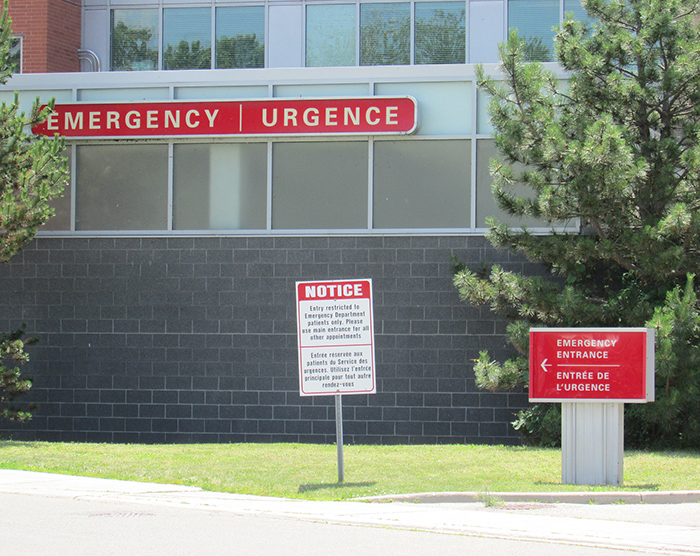
As the Chatham-Kent Health Alliance looks to reduce staff and save money, cuts have already been felt in the emergency department.
Cuts to staff, but also to wait times.
A reduction of staff and realigning of physician hours has cut wait times in half, according to Lori Marshall, president and CEO of the CKHA.
Marshall said the CKHA had ER staffing levels similar to much larger hospitals, but “the staffing patterns didn’t necessarily match when patients came to the emergency department.”
Despite staff reductions there, Marshall said the alliance has been able to add about six hours of physician time in the department each day and cut wait times.
Rob Devitt, supervisor at the alliance, said other hospitals have “figured it out” and the alliance is just following their lead.
“It was a wait time of four hours waiting to see a doctor the old way, and now it’s down to about two hours thanks to the changes,” he said.
Dr. Anthony Dixon, chief of the emergency department, said they have matched staffing levels with patient flow. There is an influx of high-needs patients – the “very sick” who are typically resource intensive – in the morning before the workday begins and another about 4 p.m. There is also an increased flow of lower-needs patients about 11 a.m.
“We were able to adjust physician staffing. For example, we upped physician staffing at 4 p.m. to have three doctors in the emergency department instead of two,” Dixon said.
Dr. Pervez Faruqi, chief of staff for the alliance, said the alteration in physician staffing was quite simple.
“We’re staffed better when we have more patients and less with less patients,” he said.
Dixon doesn’t see staff reductions in the ER as an issue, as long as resources are shifted to accommodate patient needs.
“Quality and patient safety are the number one focus. We’re confident we can adjust staffing without compromising patient care,” he said. “It’s all about matching staffing with patient flow.”
The effort is to tailor staffing needs to patient needs, but to also divert patients from the ER when possible. By augmenting ambulatory and outpatient care and providing more immediate access to health-care specialists, the alliance hopes to further ease wait times in the ER.
“You can avoid the emergency department if people can have rapid access to specialists,” Marshall said.
Faruqi said the overall workload for ER staff is expected to decrease as a result.
“There will be more support in terms of ambulatory care and access to specialists. That is going to bring a big change,” he said.






